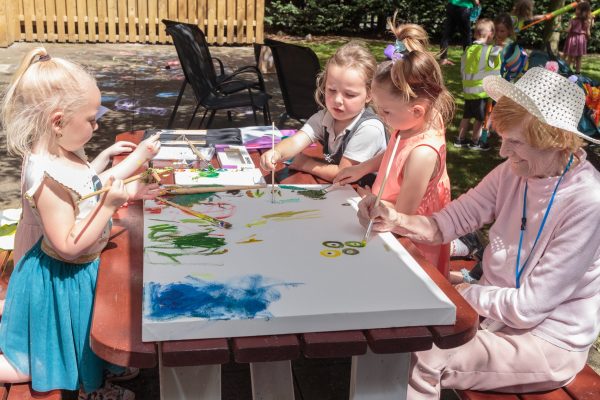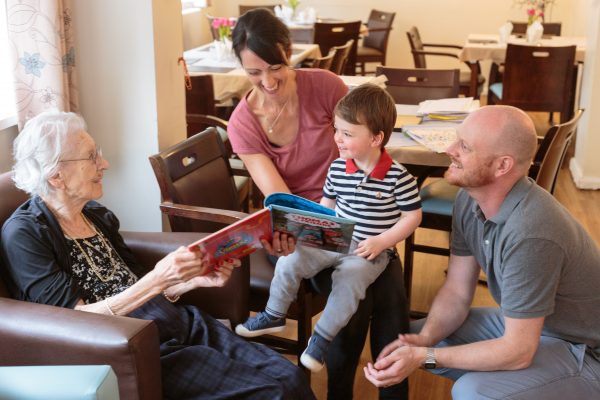
We love to have children visiting our residents. They bring so much laughter, noise and curiosity to our homes. However, explaining to your child, why their family member no longer remembers their name or is disoriented, distracted or distressed, can be very challenging. To help, Alzheimer’s Society have created some useful resources about how to explain a dementia diagnosis to a child and how it may affect them.
Dementia can create some difficult situations for families, and it can be hard to know how much to explain to young people. It is natural to want to protect children from difficult or confusing situations, but it is important to explain what is going on, to ensure they can continue to visit and build relationships.
Trying to get a sense for how much detail they can cope with and tailoring your discussion to their age and disposition will help. Making sure they feel they can ask questions, with no subject being taboo, will also help reassure children and understand why they may see changes in behaviour.
There are some common anxieties and signs of distress that children can display when finding out a loved one has dementia. These can include grief, anxiety, fear, embarrassment and even anger that their parents no longer have the time for them they had before, due to new caring responsibilities.
These anxieties can develop into longer term problems if they are not addressed. Exploring ways in which your child can help, following a dementia diagnosis, will allow them to feel involved and help them to understand the disease so they can still maintain contact with their loved one.
Here are Alzheimer’s Society’s top tips on how to break the news to a child that a loved one is living with dementia:
- Explain the situation as clearly and calmly as possible.
- Try to use simple examples of behaviour that might seem strange, such as the person with dementia forgetting where they are, or wearing a hat in bed.
- Focus on the things that the person can still do, as well as those that are becoming more difficult.
- Try to be patient. You may need to repeat your explanations on different occasions, depending on the age of your child.
- Encourage them to ask questions, if they have them.
- Ask how the person’s dementia makes the child feel. Listen carefully to what they have to say and try to imagine the situation from their point of view. This will help you find out exactly what might be worrying them.
- Give your child plenty of reassurance and hugs, where appropriate.
- Don’t be afraid to use humour, if it feels appropriate. It often helps if you can laugh about the situation together.
You can find further information and support on the Alzheimer’s Society website.










